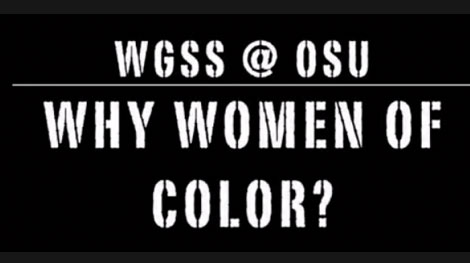 On December 17th, 2013, HuffPost Live invited me to serve as a co-panelist for a segment entitled, “Beyoncé’s Feminism Backlash.” The panel also featured feminist scholars, activists, journalists and cultural workers and critics, Imani Uzuri, Dr. Kaila Story, Joan Morgan, Rosa Clemente, and Rahiel Tesfamariam. Each panelist discussed Beyoncé self-identifying as a feminist on her latest self-titled visual album as well as how black feminists/womanists/gender-progressives responded to Beyoncé claiming a space within feminism. Initially titled the “Beyoncé Wars,” the segment highlighted a range of black feminist standpoints and provided a rich dialogue about the tensions, fissures, complexities, and intra-politics of black feminism, and more specifically, black feminist cultural criticism.
On December 17th, 2013, HuffPost Live invited me to serve as a co-panelist for a segment entitled, “Beyoncé’s Feminism Backlash.” The panel also featured feminist scholars, activists, journalists and cultural workers and critics, Imani Uzuri, Dr. Kaila Story, Joan Morgan, Rosa Clemente, and Rahiel Tesfamariam. Each panelist discussed Beyoncé self-identifying as a feminist on her latest self-titled visual album as well as how black feminists/womanists/gender-progressives responded to Beyoncé claiming a space within feminism. Initially titled the “Beyoncé Wars,” the segment highlighted a range of black feminist standpoints and provided a rich dialogue about the tensions, fissures, complexities, and intra-politics of black feminism, and more specifically, black feminist cultural criticism.
As a black feminist cultural critic, I often grapple with popular culture and mass media as sites of inquiry. More specifically as a cultural historian, I explore popular culture texts with a critical lens situated within histories of representations of black women and black womanhood. Contextualizing contemporary representations of black women and womanhood requires understanding complicated histories in which racism and sexism thrive(d). Without question, systemic exploitation, disenfranchisement, misrepresentation, dispossession, and marginalization play important roles in the historical and lived experiences of black women in the United States. While my work critically considers and engages with histories of the exploitation of black women, I also use the archive to uncover histories of black women’s pleasure and joy. Consequently, a central part of my current research agenda is the excavation of pleasure in contemporary black women-authored narratives/projects.
The release of Beyoncé’s self-titled visual album in December 2013 offered a unique opportunity to pose questions about black women, performance, erotics, (hyper)sexuality, and feminism. Her album provoked a range of responses from feminists/womanists/gender-progressives. Because of my scholarship around pleasure, erotics, and African American women’s expressive culture, HuffPost Live invited me as a panelist who could shed light upon the sexual politics extant on Beyoncé’s latest project. I attempted to offer commentary that encapsulated both the possibilities and the limitations in the feminist politics espoused on the visual album. As one of the most visible and popular artists of the twenty-first century, I affirmed the importance of Beyoncé self-identifying as a feminist. Without question, her album and larger body of work include notable “anti-feminist” moments such as word-play by her husband and frequent collaborator, rapper and mogul Jay-Z that alludes to intimate partner violence. These moments must be considered alongside the pleasure politics and women’s/girls’ empowerment narratives she espouses.
The HuffPost Live discussion about Beyoncé mirrors many difficult dialogues occurring in feminist media, black feminist thought, and popular culture classes. It is important that we approach popular culture and mass media with critical lenses. Representation matters and can have material consequences. Our engagement with media must also allow for space to account for our affective and emotional responses as well. Understanding the emotional and affective investments we have in popular culture strengthens our scholarship and teaching. I am a feminist who enjoys Beyoncé, but that enjoyment cannot and will not deter me from being an incisive and thoughtful feminist cultural critic and historian. – Professor Treva Lindsey
Watch the video here!
In addition, Professor Treva Lindsey was also recently featured in a series created by Dr. Regina Bradley (Kennesaw State University) entitled Outkasted Conversations. This series of conversations with a range of popular culture scholars focuses on the hip hop group, Outkast. As it is the 20th anniversary year of their first, ground-breaking album, this conversation is very timely and necessary. Dr. Lindsey was interviewed about embodiement, pleasure politics, and gender politics as they pertain to Outkast and their body of work. I have included the link here in case it may be something the department wants to highlight. Listen to it here!



